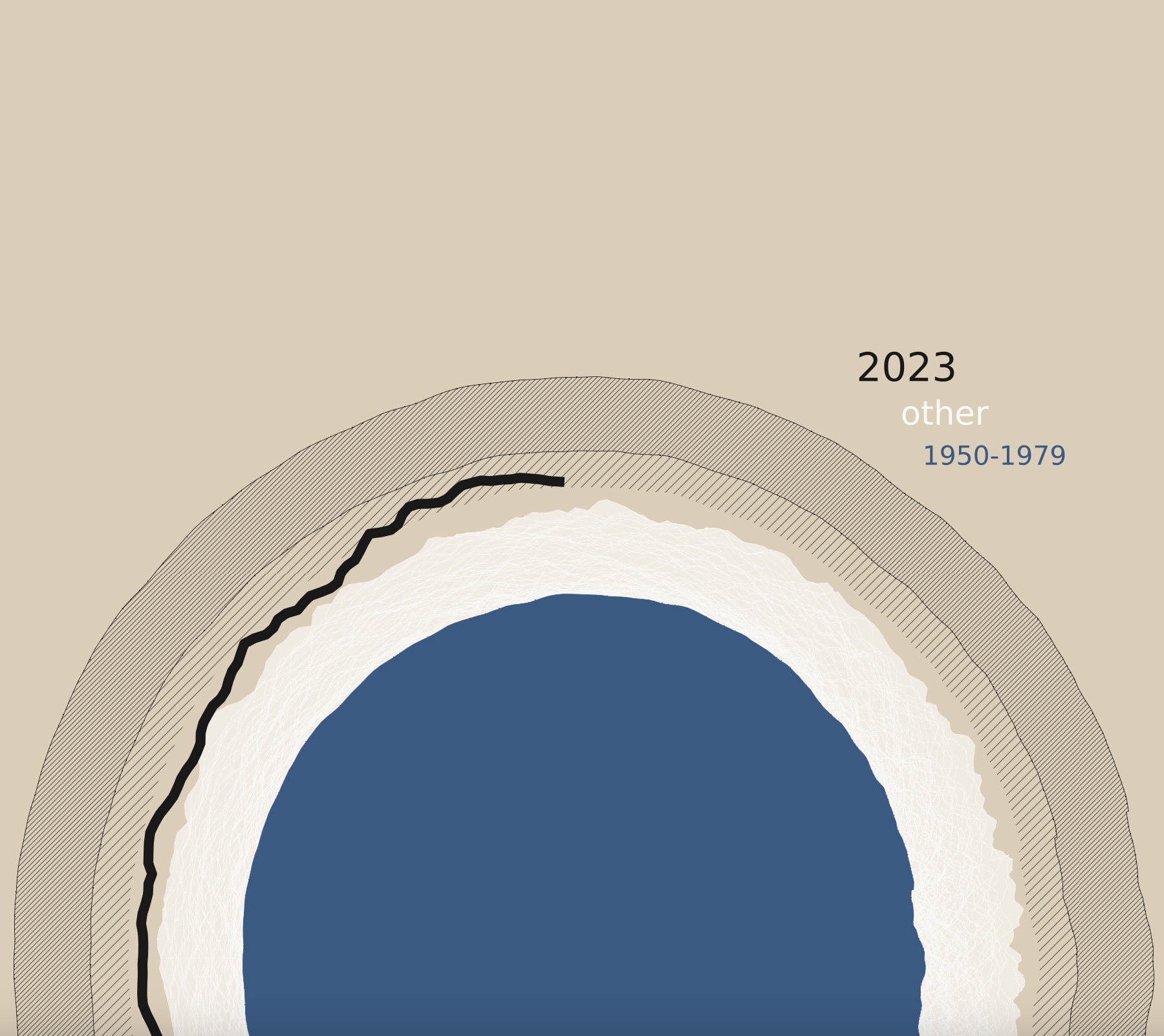Notebook to reproduce the submission Out of Orbit to the Little Pictures of climate competition 2023. Click here to see all steps to reproduce the image below.
In my piece Out of Orbit, Earth's typical global temperatures are visualised as the atmosphere around Earth. The year 2023, in particular summer 2023, stands out against the previous years, similar to an object that goes beyond Earth's orbit (at times already beyond the 1.5 degree warming level).
The Earth is plotted in blue as the 1950-1979 baseline. All other (following) years span the "atmosphere", while 2023 is plotted with a bold dark line. The two shaded areas show a 1.5 - 2 degree warmer world, and a 2 - 3 degree warmer world, respectively.
The visualisation is entirely data-based, using ERA5 data for 1940-2023, available from the Copernicus press release "September 2023 – unprecedented temperature anomalies; 2023 on track to be the warmest year on record". Used Python packages are matplotlib, numpy, and pandas.
The notebook makes use of polar coordinates, plotting the global temperatures in the complex plane,
Larger distances to the centre of Earth, ax.set_theta_direction(-1.)). The globe is rotated (ax.set_theta_zero_location("E", offset=20)), such that individual years start towards the "Eastern" side of the plot in January (with some offset), and September is thus always towards the top ("North") of the plot. For 2023, in particular, this means that we are "out of orbit" at the top of the plot in September 2023.
